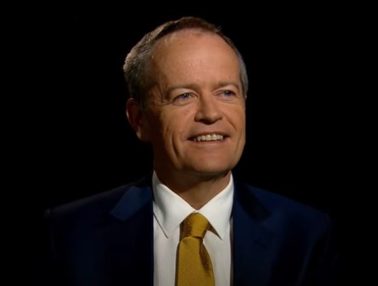Government Services Minister Bill Shorten has unveiled the Trust Exchange, or TEx project, which he’s described as a major step forward for Australia’s digital infrastructure.

Services Australia is partnering with Finance Minister Katy Gallagher, Assistant Treasurer Stephen Jones and other government systems to develop TEx, which will give Australians the ability to verify their identity and credentials based on official information already held by the Australian Government.
While most other jurisdictions have a centralised ID based on a number from birth, the new system will represent a decentralised model with more privacy and security, Mr Shorten said during an address to the National Press Club on Tuesday.
“TEx is something brand new and world leading,” he said. “It is not a wallet or app or ID. Rather, it is a secure means by which to exchange with a third party ‘who you are’ – your identity – or ‘what you can do’ – your credentials.”
It’s early days yet with the project currently at the proof-of-concept stage, but the government is investing $11.4 million in building TEx infrastructure as part of its Digital ID project.
Unleashing potential of technology
Mr Shorten told the Press Club that technology can be harnessed to make Australia a world leader in government service delivery.
The government has already introduced the myGov portal, which is the largest online platform in the country with 5.6 million users, but its potential is underutilised, Mr Shorten said.
While MyGovID, which is owned by the ATO, acts as a proof of identity for both government and business, Services Australia-owned MyGov functions as a place to use MyGovID across online government services.
TEx will create a “tech trifecta”, the minister said.
Essentially it wll allow users to scan a QR code that digitally ‘shakes hands’ with their myGov wallet, letting them choose only the information they need or want to share. It will also be able to verify identity without any information being exchanged at all.
“You need a service – let’s use getting a hotel room as an example,” Mr Shorten said.
“When you check in, the hotel requests your personal information – often that’s your driver’s license or passport.
“With TEx, instead of handing over those documents to be copied in some form, you would scan a QR code on the front desk – or use technology similar to tap-to-pay machine.
You choose only the information you wish to share with the hotel from your digital wallet and consent to its use. You will have a record in your myGov wallet of what you shared and with whom you shared it.
Bill Shorten
“You choose only the information you wish to share with the hotel from your digital wallet and consent to its use. You will have a record in your myGov wallet of what you shared and with whom you shared it.”
It could also be used for proof of age to enter clubs and venues, where a ‘digital token’ will be sent to the club vouching for their identity and that they’re over 18.
“Not even their actual age is disclosed, merely that they are over 18,” Mr Shorten said.
“The token will be … of zero value to a cybercriminal because the confirmation token will not contain any personal information All that has been exchanged has been a digital ‘thumbs up’ from the Government that you are who you say you are.”
Mr Shorten said Telstra and Google have welcomed the opportunity to be involved in development of TEx, which also has in-principle support from the Tech Council of Australia, the Commonwealth Bank, and employment platform SEEK.
The government aims to have proof of concept by January 2025, followed by potential pilots.
TEx will be an opt-in system.





Leave a Reply